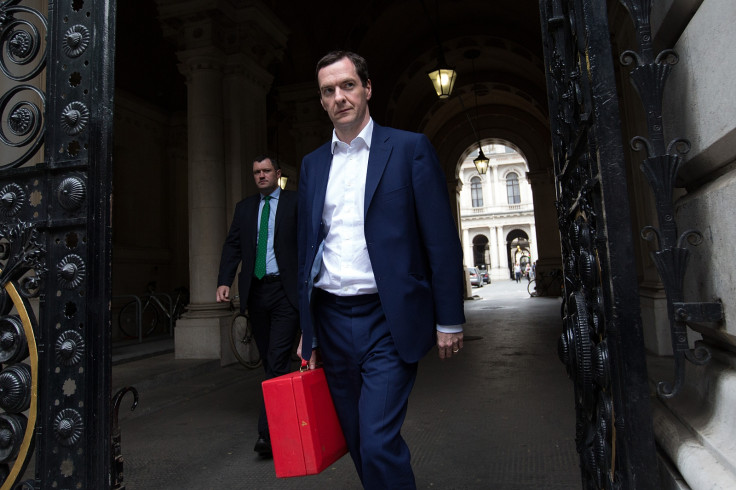Summer budget 2015: George Osborne announces tax threshold changes and bank levy reduction

Chancellor George Osborne announced major tax changes in his summer budget statement on 8 July, including the rise of the 40% tax threshold and tax-free personal allowance.
He said the amount of tax-free income UK workers receive will be increased from £10,600 to £11,000 from April 2016.
"The rates of income tax in this budget remain unchanged, but the thresholds do not. Today I am taking the first major step to delivering our promise," he told the Commons.
"The rates of income tax in this budget remain unchanged, but the thresholds do not" - Osborne
The tax-free personal allowance was up to £6,500 under the Labour government and the Tories aim to eventually raise it to £12,500.
The 40% tax threshold will start at £43,000, up from £42,385, the chancellor announced. He added the government is planning to raise the threshold to £50,000 and claimed 29 million people will be paying less.
Osborne also announced the abolishment of permanent non-dom tax status from April 2017. The change applies to individuals who have lived in the UK for 15 of the past 20 years.
He said: "Many of these people [non-doms] make a considerable contribution to our public life and to tax revenues. But there are some fundamental unfairnesses in the non-dom regime that I am putting a stop to today."
As widely expected, the chancellor also raised the inheritance tax threshold, meaning up to £1m can be passed on tax-free to children and grandchildren.
Chas Roy-Chowdhury, head of taxation at the Associated Chartered Certified Accountants, said: "The change to inheritance tax is a positive step, although he could have just removed the primary residence from the scope of the tax entirely. This would have made it a level playing field for all. He has introduced a highly complex system of relief tapers and carry forwards."
"Many people imagine a house worth £1m to be a mansion but in the south east, and especially London, that is not the case."
Banks and corporations
After much lobbying from big banks, Osborne also announced he is making changes to the bank levy imposed in 2010, saying the government is "doing harm unless we change it".
The chancellor said he is planning to gradually reduce the levy rate over the next few years, abolishing it completely in 2021. He is imposing an 8% surcharge on profit tax so the banks are not exempt from paying their part.
He said: "Banks make a key contribution to our economy, but they also need to make a fair contribution. It's important they help pay back the debt build up in the banking crisis but equally important that they keep on creating jobs... To maintain a fair contribution from banks, I will introduce an 8% surcharge."
In further tax reductions for companies, the chancellor announced the corporate tax rate will be cut from its current 20% to 19% in 2017 and 18% by 2020.
Roy-Chowdhury said: "We are in a competitive global market and the more we can do to encourage all businesses to the UK, the better the long-term tax yields will be."
© Copyright IBTimes 2025. All rights reserved.






















